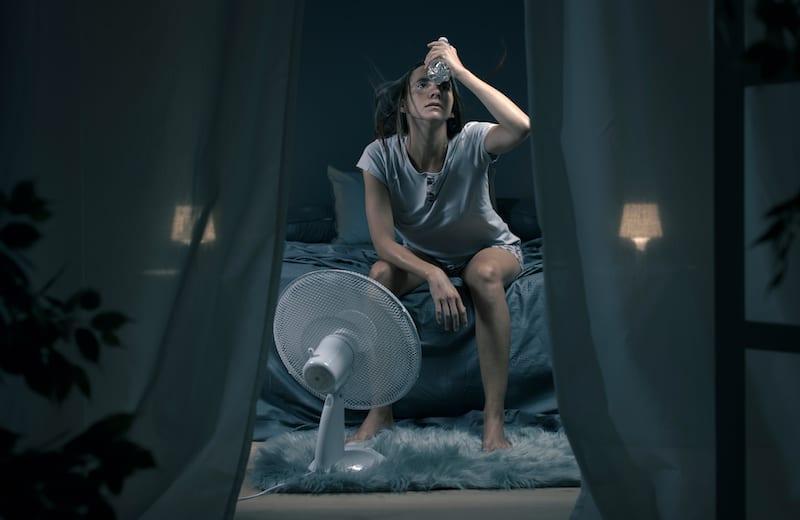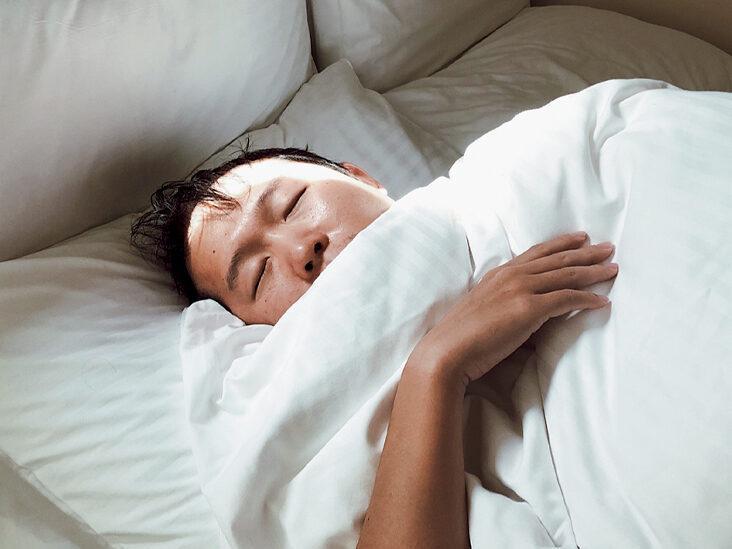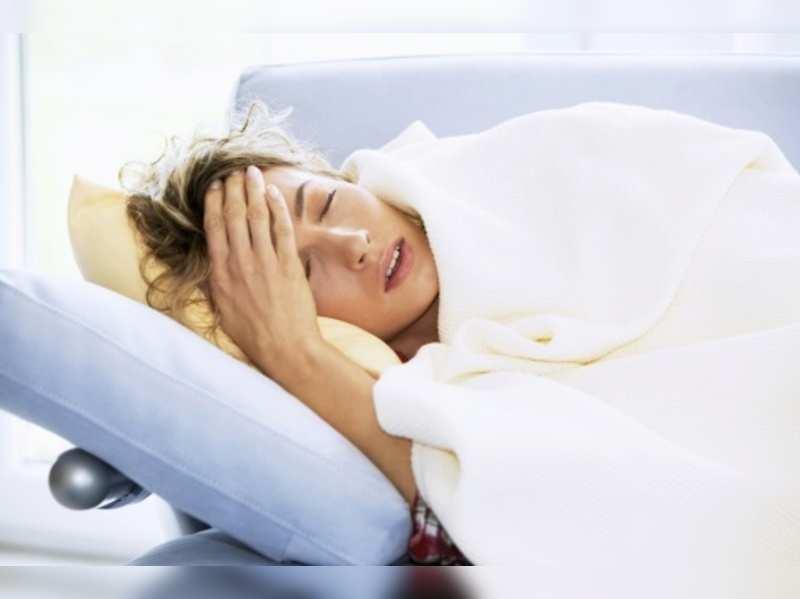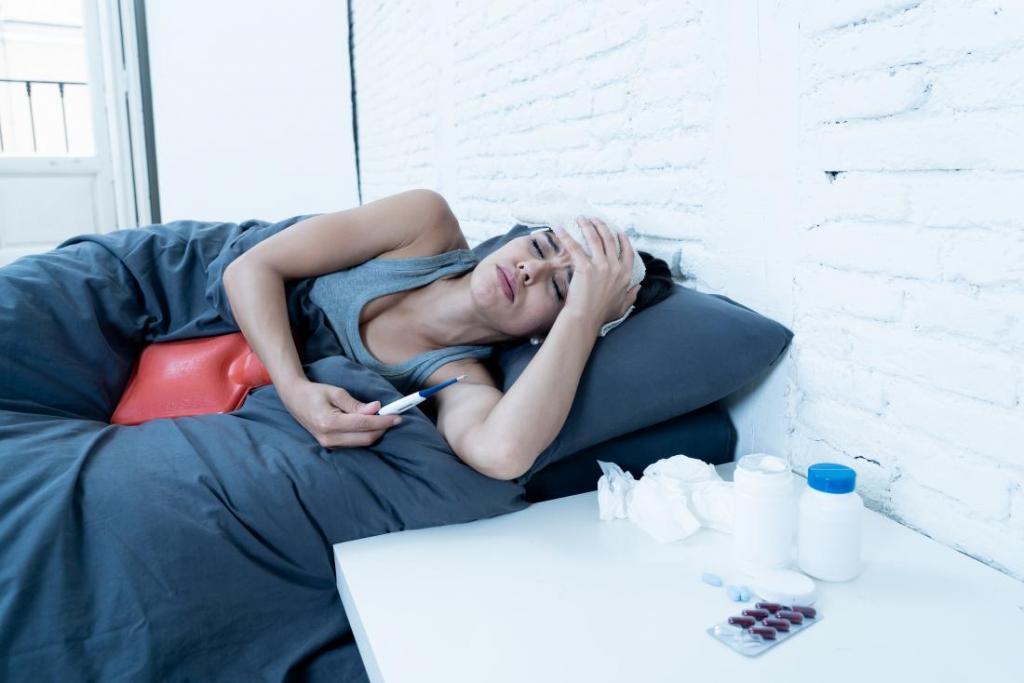Circadian rhythms depend heavily on body temperature. As we go to sleep and wake up throughout the day, our body temperature fluctuates. The body’s core temperature naturally falls as we approach bedtime and continues to fall as we sleep. Skin temperature also rises in the hours leading up to and during sleep. Temperature regulation occurs throughout the night as our bodies work to keep our body temperature within a specific range. In the event that we are overly chilly, shivering is a good way to raise our body temperature. When we’re overheated, sweating helps us cool down.
- How To Clean A Mattress? Complete Step-by-Step Guide
- How To Get Rid Of Dark Circles? What is it, Causes, and Treatment
- ism v6 software download for windows 10 ✓ Type in Marathi ★ Get Started Now
- How Long Does A Crib Mattress Last? Helpful Tips To Remember
- How To Remove Stains From Mattress? Complete Step-by-Step Guide
Occasionally, our body’s thermoregulation systems lead us to wake up because the equilibrium between heat and cold is disrupted. When you wake up in the middle of the night shivering or sweating, it’s never pleasant. Too much or too little heat or cold might cause this.
You are reading: Why Am I Shivering Or Sweating At Night?
There are times when the shivers and the perspiration are not related to thermoregulation; rather, they may be caused by something else entirely.
What are night sweats?
Due to the prevalence of night sweats, primary care physicians frequently hear their patients complain about them. The term “night sweats” refers to excessive nighttime sweating. Sweating when sleeping is natural if your bedroom temperature is extremely high or if you are sleeping in too many clothes. For the purpose of distinguishing between night sweats caused by medical conditions and those caused by an overheated environment, doctors usually refer to true night sweats as extreme hot flashes that occur at night and can soak sleepwear and sheets.

According to a survey of 2267 individuals seen by a primary care physician, 41% of them had had night sweats in the preceding month, indicating that the feeling of night sweats is widespread. Flushing (a redness and warmth of the face or body) may also be difficult to distinguish from genuine night sweats.
How do Shivering and Sweating affect your Sleep?
Our bodies shudder when we’re chilly in order to generate more heat and keep us warm. The opposite is true when we’re hot. Sweat acts as a heat sink, removing heat from our bodies and allowing us to chill down.
Body temperature abnormalities can cause shivering and sweating, which are both acceptable responses.
Shivering or excessive perspiration can jolt you awake, resulting in:
- a lack of sleep
- excessive drowsiness during the day
- Anxiety and irritability
- Emotions are heightened.
What are other signs and symptoms of night sweats?
In some cases, other symptoms may accompany night sweats, depending on the underlying reason of the sweating. For instance:
- Certain tumors and infections
- As a result of a fever, shaking and chills may ensue.
- Lymphoma-related weight loss.
- Aside from night sweats, menopausal transition symptoms such vaginal dryness, daytime hot flashes, and mood changes are common.
- Depending on the medication, night sweats that occur as a side effect may be accompanied by other side effects as well.
- Night sweats aren’t the sole cause of excessive sweating; conditions that cause sweating throughout the day will also cause night sweats.
Causes of Shivering at Night
To begin, if you live in a cold climate, make sure the temperature in your room isn’t too low and that you have enough blankets to keep you warm.
Despite this, if you find yourself shivering at night, there are a number of plausible causes:
Infection
Chills are a natural response that helps the immune system kick in faster when illnesses such as urinary tract infection, malaria, and pneumonia are present.
Muscle contraction and relaxation during shivering also raises your body’s temperature, which helps your immune system combat the illness more effectively.
Menopause
Menopause can produce both sweating and shivering because of the many hormonal changes it triggers in your body. Menopausal hot flashes are often accompanied with a tingling sensation in the hands and feet.
Drug Withdrawal
This may be a sign of drug withdrawal, according to experts. People typically experience the following symptoms when they reduce or stop using an addictive substance:
- Depression and agitation
- Appetite shifts
- Mood shifts
- Achy muscles
- Feeling cold or wet
- Tremors
- Vomiting
Opioid withdrawal is frequently accompanied by shivering.
A doctor should be consulted before to quitting an addictive substance to ensure that you avoid unpleasant side effects, which may potentially lead to a relapse.

Causes of Sweating at Night
When you get hot, your body produces perspiration, which acts as an evaporator, removing heat from your body.
It’s true that sweating cools the body, but excessive sweating might disrupt your sleep.
Read more : Purple vs. Tempurpedic Mattress Comparison
Multiple factors can lead to night sweats, such as:
Infectious Disease
Your body may heat up to kill pathogens like bacteria and viruses when fighting them off. Owing to its ability to boost body temperature, inflammation can also lead to excessive perspiration.
Menopause
The cessation of menstrual cycles is a normal part of the menopause process. Many physical and mental symptoms can occur even though it is not a sickness.
Menopausal women commonly have hot flashes and nocturnal sweats.
Medications
Perspiration can be increased by some drugs. Antidepressants and other psychiatric medications can cause night sweats.
A number of anti-fever drugs, such as aspirin and acetaminophen, have been linked to night sweats.
If you’re suffering night sweats as a result of taking a medicine, then you should talk to your doctor about it.
Also, if you’re trying to stop using opioids, you may get night sweats as a withdrawal symptom.
Obstructive Sleep Apnea
Obstruction of the upper airway can cause breathing difficulties. An enlarged tonsil or the tongue falling into the throat while sleeping may be the source of this obstruction.
Obstructive sleep apnea (OSA) causes the following symptoms in those who suffer from it:
- Snoring that is audible from a distance.
- Reeking of exhaustion
- Slumped slumber
- Breathing that makes a ruckus
- excessive drowsiness during the day
- Irritability
Sleep apnea, which can cause depression and heart disease, is a dangerous illness.
Hormone Disorder
Excessive sweating can be caused by a variety of hormonal conditions. If your hormones are out of whack, you may not be able to control your temperature properly.
Certain hormonal imbalances can lead to increased nighttime perspiration, including the following:
- As a result, hyperthyroidism occurs when the thyroid gland generates an excessive amount of thyroxine.
- The adrenal gland non-cancerous tumor known as pheochromocytoma can affect hormone levels..
- Many of the symptoms of carcinoid syndrome, including night sweats, might be caused by malignant tumors.
Hypoglycemia
Excessive nocturnal sweating might be a symptom of hypoglycemia. Night sweats can be an issue even when you’re taking medicine, because the medication’s impact wears off at night.
Hypoglycemia is more common in people with diabetes who are on insulin therapy. Additional risk factors for low blood sugar include the following:
- Over-training
- Excessive fasting and avoiding food
- Certain pharmaceuticals
Hypoglycemia can cause the following symptoms:
- Hunger
- Vision is hazy.
- Skin that is light in color
- Irritability
- Mood shifts
- Fatigue
- Dizziness
- Sweating
- Tingling
- The inability to keep one’s attention
- Comas and seizures
If you suspect that you have hypoglycemia, contact your doctor immediately.
Cancers
Night sweats might be brought on by cancerous tumors. Cancers that cause night sweats include the following:
- Lymphoma
- Leukemia
- Cancerous tumors known as carcinoid
- hepatitis
- cancer of the bones
- Mesothelioma
Despite the fact that scientists are still baffled as to why some forms of cancer are associated with night sweats, they believe that your body is simply fighting back.
Having a fever as the result of cancer can cause you to sweat excessively at night.
Chemotherapy and other cancer therapies can potentially induce nocturnal sweats.

Neurological Conditions
Night sweats can be caused by the following neurological conditions:
- Injuries to the upper back or spinal cord might result in autonomic dysreflexia. Immediately get medical treatment if you are experiencing any of these symptoms.
- In cases of spinal cord injury, a condition known as posttraumatic syringomyelia results in an accumulation of cerebrospinal fluid in the spinal cavities.
- One of the most serious and life-threatening medical emergencies, stroke occurs when blood flow to a region of the brain is cut off.
- An autonomic neuropathy occurs when the nerves that govern involuntary functions like digestion and blood pressure are injured.
Medical attention is required for all of these disorders.
Idiopathic Hyperhidrosis
Your disease is idiopathic if your doctor is unable to identify a specific cause for night sweats.
How To Stop or Reduce Shivering and Sweating While Asleep
In cases where the reason of the nighttime shivering or sweat is known, treatment should focus on correcting that problem. There are a few things you can do to try and determine if the source of your midnight shivers and sweats can be found.
- You may want to raise the temperature in your bedroom to about 65 degrees Fahrenheit, according to research. If you’re constantly shivering or sweating at night, you may want to try raising or lowering the temperature in your room to see if it helps. To ensure a restful night’s sleep, make sure your mattress and bedding are able to regulate your body temperature effectively.
- Try adding more layers of clothes, such as socks, or blankets, if you’re shivering at night. Remove layers and sleep in loose, breathable clothing if you’re sweating.
- Place a fan in your bedroom to help chill you down, while taking a hot water bottle or heating pad to bed will keep you warm.
- Take your temperature to see whether you have a fever. If you do, you may be infected. Rehydrate yourself with plenty of water and take some time to recover at home. Fever symptoms may be alleviated by taking a sponge bath in lukewarm water. There are other over-the-counter drugs that reduce fever.
Tips to Reduce Sweating or Shivering at Night
Sweats or chills at night might keep you awake, resulting in drowsiness, irritation, and even depression during the day.
So, in order to get a good night’s rest, you’ll need to do something to alleviate your symptoms.
A few tips to aid you with the same are provided below:
Adjust the Room Temperature
Lower the temperature in your room if you’re experiencing excessive perspiration.
Increase the temperature in your room and cover yourself with blankets if you begin to shiver.
Even though 65 degrees Fahrenheit is generally considered ideal for a good night’s sleep, you should lower the temperature in order to alleviate your problems.
Get Cooling Gel Pillows
Memory foam is frequently used in the construction of cooling gel pillows. Cooling gel pillows, on the other hand, do not store heat from our bodies and do not return it to us afterwards.
In addition, the memory foam fill adjusts to support your neck in the most comfortable way possible.
Follow Good Sleep Hygiene
You need to practice appropriate sleep hygiene in order to have a decent night’s rest.
Here are some pointers to get you started:
- Even if you’re shivering, it’s a good idea to wear loose-fitting clothing to bed.
- Meditating for a few minutes can help you de-stress. You’ll fall asleep as your body relaxes as your mind does.
- To lose weight and tone up, it’s important to get your heart rate up and your lungs working out on a daily basis.
- Stress and anxiety can be reduced through the simple act of writing down your ideas and examining them in a diary.
- Maintain a regular sleep schedule: maintaining a regular sleep schedule is critical to good sleep hygiene. Maintaining a routine will train your body to sleep at regular intervals.
Is This Dangerous? When Should You See a Doctor?
Sweating or shivering at night is generally not a sign of anything harmful and should not be taken as a cause for concern. There are times when it’s best to seek medical attention for symptoms that aren’t alleviated by changing your bedroom temperature or bedding. The frequency and intensity of your shivering or sweating, as well as any other connected symptoms, will be recorded by your doctor. Diagnostic tests may also be recommended by your doctor in order to diagnose or rule out an underlying illness.

A doctor should be consulted if your temperature reaches 103 degrees Fahrenheit for more than three days, or you experience symptoms such as a headache, neck stiffness, chest pain, a rash, or severe throat swelling as a result of a fever.
Diagnosing the cause of night sweats
In order to find out what’s causing your night sweats, your doctor will employ a variety of techniques. These are some examples:
- disclosing your symptoms, medical history, and current pharmaceutical regimen.
- tracing your family tree
- a physical examination
- Having tests done to see if there is an underlying health issue
To get the best care, your doctor may recommend sending you to an expert in the field of your illness, such as an oncologist or dermatologist.
Vote for this post!
Source: https://bestpillowsleepers.com
Category: Sleep Advisors





